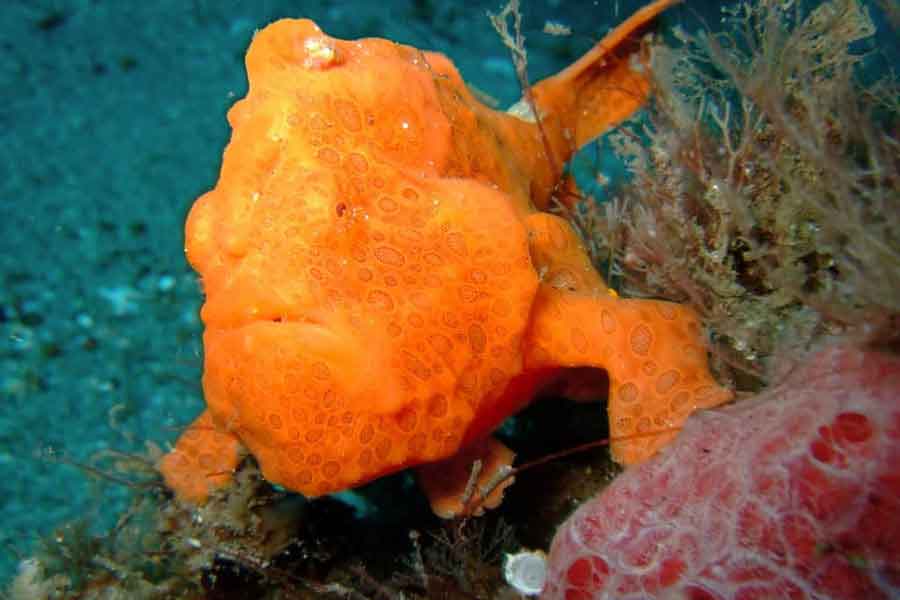
Many fish use camouflage to go unnoticed by predators, but none of them can blend in as well as the fantastic sponge fish.
This small inhabitant of warm seas, barely reaching a maximum size of 30 cm, not only perfectly matches the color of the sponges living on the reef but also imitates their spongy texture to the point where the difference is indistinguishable to the touch.
Far from being an innocent little fish, the sponge fish is a ruthless carnivore. Any small fish that mistakes it for a sponge and swims in front of its mouth will be surprised by a swift movement that sends it directly into the stomach of the camouflaged predator before it realizes what is happening. This astonishing mimicry also helps it hide from those who might feed on its soft flesh. That’s why remaining still is absolutely essential to go unnoticed. Everything in the life of a sponge fish is extremely slow, except for the short and quick movement required to catch its daily meal, after which it will take a long nap.
The perfect camouflage of this fish is far from fast and adaptable. Since there are many sponges of the same color in a reef, the fish can jump from one to another at will. However, if it had to move to an area where the sponges are a different color, it would take nearly a month for it to assume the color of its new hosts. That’s why sponge fish are not prone to changing neighborhoods very often. During that time, they are exposed to predator attacks, and what’s worse, they are practically doomed to hunger as their figure becomes visible. Of course, with such little movement and energy expended throughout the day, they don’t require large amounts of food to survive.
The yellow fish in the photo is perched on a red sponge and has not yet begun the process of changing color. If it were perched on a yellow sponge, it would be completely invisible. That’s why, accustomed to this invisibility, it doesn’t worry at all about the presence of a female diver a few centimeters away, as it trusts that she won’t see it.
After all, people see the obvious, the distinct. There are far fewer who search among small things for great mysteries. They will be pleasantly surprised when, approaching an innocent marine sponge, they see an eye staring back at them. They will have discovered the great simulator of the sea. A privilege for a few.
«One cannot defend what one does not love, and one cannot love what one does not know.»

